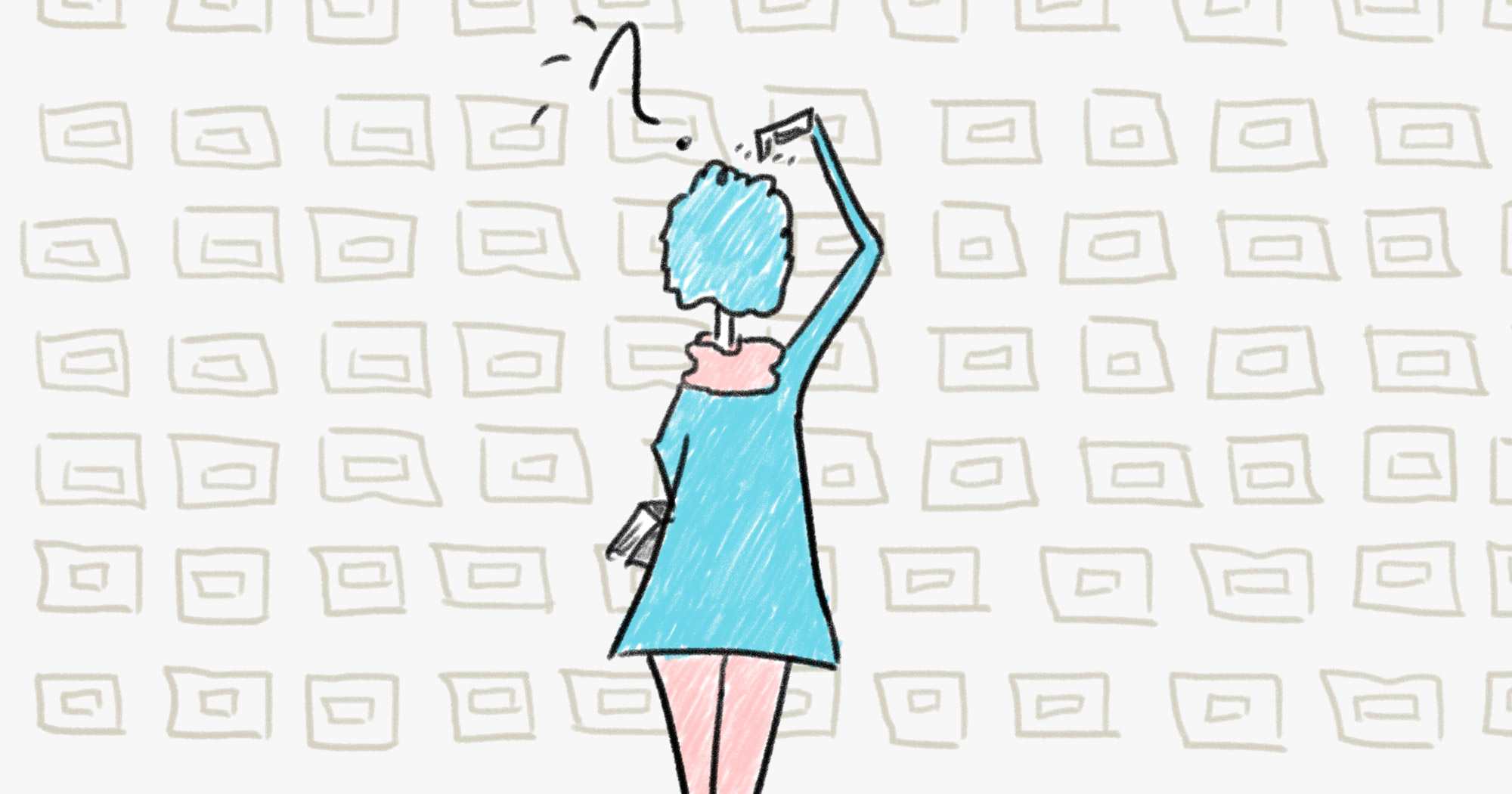Sorry, Dewey, the Decimals are Outdated; the Catalog of the Future will Aid Indies

The Dewey Decimal System is a strange beast. Young Melville Dewey—and I do mean young, because he wasn’t even 25 yet—cooked it up based on the subjects of one of his general studies college textbooks. Previously, librarians had organized their particular institution’s books pretty much however they wanted, usually based on some kind of alphabet system, sometimes based on size, but never quite the same way between two libraries.
The Dewey system was more than just an innovation. By itself, the feat of organizing that much metadata without a computer is impressive. But let’s be honest: the proof is in the pudding. The Dewey system was staggeringly and obviously a good enough idea to achieve nearly universal adoption in a profession made up almost exclusively of introverted individualists.
So when I say that Dewey has issues, don’t mistake my intention. I have loads of respect for Dewey. At its core, it’s still a solid system.
But not for independently published books.
Things Dewey Didn’t Know
The world has changed a lot since 1899. Heck, the world has changed a lot since 1999. To avoid being banal, I won’t point out the big headlines of the twentieth century, except to say that historical analysis of the era from 1935 to 1945 is not likely to slack off in the near future. Going forward, we won’t have fewer 940.53s.
Nor will we ever have a good place for the histories of women, African Americans, or gay people. Remember, Dewey predates social mainstreaming of minorities. Islam and other American minority religions will always be marginalized in Dewey next to Christianity. A reference piece on the collective history of Muslim, African American lesbians is likely to end up in three different places in three different libraries, and in each place, its cutter number will be as long as your arm.
The reason that this is problematic for independent and small-press books is that minorities still don’t sell particularly well in the mainstream. A large publisher is less likely to take on books about, say, the Tulsa Race Riot of 1921 than a small, academic one that focuses on African American history. That means fewer books about minorities, and that those fewer books will be harder to find anyway because they’ll be scattered and will bear ridiculous cutter numbers.
As a result of their subject matter, some small-press nonfiction books can end up being hard to find in Dewey, especially if they’re not as widely distributed as a mainstream, bestselling piece of literary nonfiction like Eric Larsson’s Devil in the White City or Mark Kurlansky’s Cod. A book that every library owns is more likely to feature a stable call number just because catalogers will copy one another’s work rather than guessing at new locations for the item. Furthermore, a rarer, less widely distributed book is less likely to be present in the gold standard of cataloging, the Online Computer Library Center (OCLC.) This is a disadvantage for the same reason.
So Dewey isn’t likely to get any less complicated. Nor are there likely to be fewer independently published or small-press published books in the near future; self-publishing gets easier every year and small presses increasingly take advantage of the Internet to market to niches both in an out of the public sphere. Libraries of all types would do themselves a disservice by ignoring the books that are just plain hard to catalog, never mind those awkward situations where a patron specifically requests the acquisition of a self-published sports memoir or specialty cookbook.
Adapting to Change
OCLC itself is already adapting to the change in the wind, remolding its online interface, WorldCat, to suit an online environment. Today’s online catalog features keyword clouds. Subject headings feature prominently. You’d be hard pressed to find a cutter number anywhere unless you’re actually logged into the librarian interface. Indeed, why would you need one? You can search by ISBN, title and author. Items feature custom tags. Books appear on user-created lists. The Dewey number has given way to a more social platform, one better optimized for chance discovery.
And, frankly, it works great on the Internet. This is how I discovered the moving classic, Amish Vampires in Space based on my love for, apparently, quirky zombies and religious books. My home library doesn’t own a single copy. How would I ever have encountered it except on the Internet? If this book were nonfiction and filed in Dewey, what’s the likelihood that I would have just happened upon it? Worldcat is easy to use, innovative, and draws inspiration from social media. I love WorldCat.
What’s Good for Indies?
That said, when I think of cataloging systems that give a leg up to indie titles, the first thing that comes to mind is Goodreads. It accomplishes a similar feat to WorldCat: it catalogs books in a way that is graceful, interactive, and intuitively understandable to non-librarians. It’s not ideal for research, and it can be uneven in quality when it comes to metadata, and of course it’s run by a for-profit company, but despite all of that, it works. It organizes books and lets people find new ones.
And yet Goodreads is not an OPAC. Having an OPAC that functioned as a Goodreads clone might only work so well—the tech support alone!—and there is the small problem that public libraries cater to a paper-loving public. The ultimate trick, the Unified Theory Of Organizing All The Books, is tying an online system into a physical one successfully enough that someone can go to WorldCat, see a title, and find that title on a library shelf as intuitively as they found it online, while at the same time enjoying the discovery features so useful in Goodreads and so critical to indie success.
Here is the point in the conversation where everybody winces as they anticipate what comes next. As visions of innumerable cardboard boxes and moving trucks and temporary spaces fill their heads. As confused crowds of imaginary patrons approach mental reference desks in bewildered hordes. I speak, of course, of switching to BISAC.
Theoretically, it seems like it ought to work: just organize the IRL books by subject, just like the online ones. Make them browsable and remove the confusing arbitrary numerical system. Until November 2015, OCLC experimented with rolling the Book Industry Study Group Headings into WorldCat, along with a number of other subject-focused Terminology Services like FAST (Faceted Application of Subject Terminology) and LCGFT (Library of Congress Genre/Form Terms) and XKCD (this is actually a webcomic. Looks real, though, doesn’t it?).
Then, it decided to go with linked data instead, because it turns out that, in real life, subject headings are a damned pain. They solve few problems and revive a slew of old ones. Remember that book about African-American lesbian Muslims, and the problems it would have in Dewey? Same issues with BISAC, except with additional typing. Furthermore, within each subject, organizing by sub-subject is still an awful chore. I actually once worked for a forward-thinking library that tried to implement a hybrid Dewey/BISAC system by placing books by subject and then using Dewey within those. They ended up with a system that only the librarians knew how to use, and then only because we’d all straight-up memorized it. Small-press books not only still got lost in the shuffle, but were actually harder to find than before.
Innovation
So now we’re at an impasse. Online systems are raising all boats fast, making accessible titles that might otherwise have languished in obscurity. (Case in point: Amish space vampires.) They’re doing it without making readers use Dewey and they’re doing it in innovative social ways that encourage book discovery. But physical books aren’t going anywhere - indeed, they’re resurging in popularity - and the quaint cataloging system that patrons still stumble through is only really useful with the aid of an OPAC that, itself, is largely keyword based.
Is it worthwhile to look for a new kind of cataloging system for a new kind of book? I think so. The publishing world has become oligarchic. On a physical shelf, maybe the comparative handful of indies would always be swamped simply because of the numbers. But the Internet is boldly going where no cataloging system has gone before, and I feel certain that the next Dewey will democratize the printed library once again. Meanwhile, we have our displays and our booklists, our Goodreads and our personal expertise. If the catalog has that far to grow, then there are worse places to start from.

Anna Call is a reference librarian at the Nevins Memorial Library in Methuen, Massachusetts. Follow her on Twitter @evil_librarian.
Anna Call
